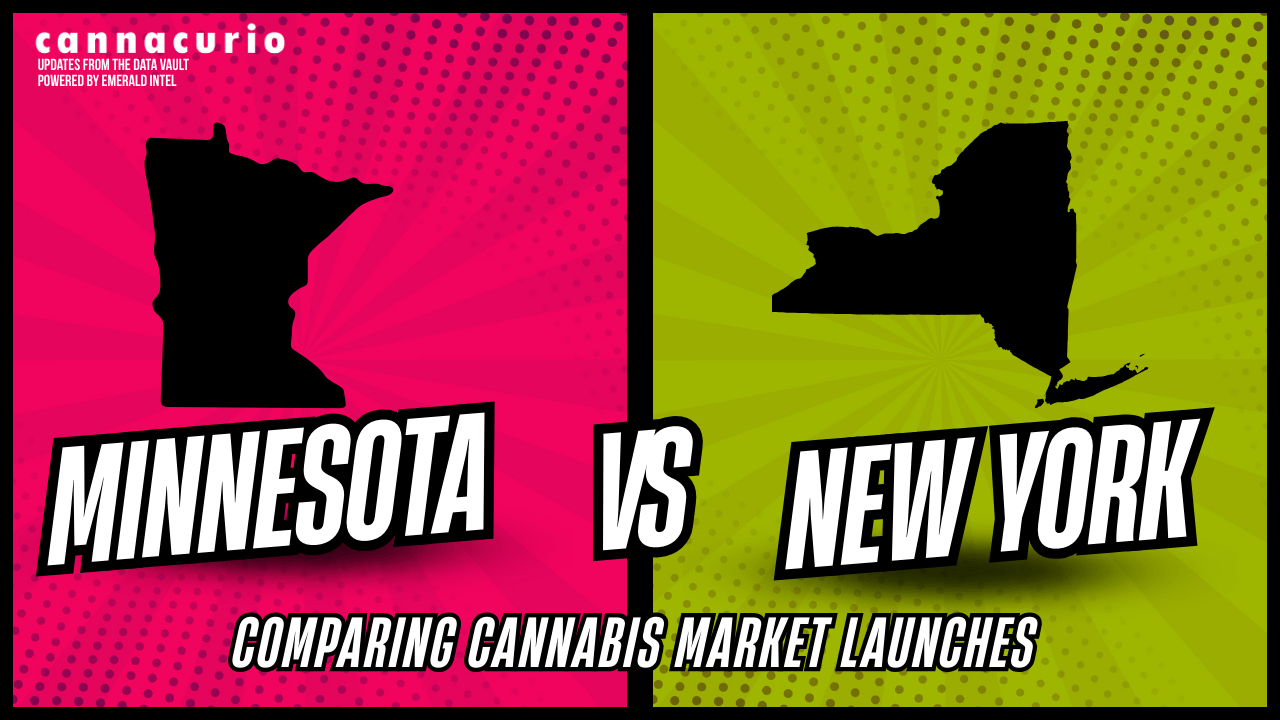
How Technology is Changing Cannabis Delivery
There are four types of cannabis delivery where technology plays a significant role in improving efficiencies, security, tracking, customer satisfaction, and ultimately, profits for businesses. These four types of delivery happen during manufacturing, distribution, and sales. Let’s take a closer look at each and the innovative technologies that are redefining delivery as we know it.
Medicinal Delivery During Manufacturing
Scientists are conducting research every day to find new ways to deliver the active ingredients in cannabis to people in highly targeted ways, so they have more options to get the effects they want in convenient forms. Furthermore, many of these delivery methods are focused on limiting the psychoactive effects of marijuana while maximizing the therapeutic effects in a consistent manner.
As early as 2017, the concept of rapid delivery of THC became the focus for scientists working with cannabis brands, and multiple innovations have come from their research and product development efforts.
For example, in 2019, Azuca teamed up with Wana, the leading edibles company in North America, to offer a line of edibles using Azuca’s fast-acting technology. Since then, Azuca’s patent-pending technology has been adopted by multiple cannabis companies.
At the same time, other companies had been developing their own fast-acting technology, including MedPharm whose patented technology led to the creation of its liquid, fast-acting emulsifiers and nano technologies. Coda Signature is already using MedPharm’s technology in the manufacturing of some its edible products. Quicksilver Scientific has also developed a proprietary nanoemulsion delivery system.
This type of cannabis delivery technology started to get a lot of buzz several years ago when some companies adapted ideas from the pharmaceutical industry for the cannabis industry. In 2018, Aurora Cannabis Inc., a licensed Canadian medical marijuana producer, acquired a 9.14% ownership of Canada’s CTT Pharmaceutical Holdings Inc. with a goal to launch marijuana products using CTT’s dose-specific, fast-dissolving oral thin film wafers.
Also in 2021, The Greater Cannabis released its cannabinoid transmucosal patch, which sticks to the inside of the mouth and allows the cannabinoids to be absorbed through the cheek. Later in 2021, IntelGenx Corp. and Tilray announced plans to develop products with oral film delivery, and CURE Pharmaceutical announced that, through a licensing agreement, Canopy Growth would have an exclusive license to CURE’s patented oral thin film delivery technology.
All of these companies, brands, innovations, and technologies have a common goal to standardize and control cannabis dosing, effects, and experiences using technology and innovative delivery systems.
Marijuana Delivery in Support of Operations
As you move along the supply chain, cannabis products must be moved from one stakeholder to the next – from cultivator to manufacturer, from manufacturer to dispensary or retailer, and even more in states that require testing in separate lab facilities. Every time marijuana is placed in a delivery truck (regardless of the form it’s in) there is risk involved. Theft is not uncommon in this industry – even among employees – so sophisticated security technology is essential to protect cannabis companies from losses.
Companies like Safety Vision offer surveillance cameras for delivery vehicles that monitor pick-ups and drop-offs, activity around the vehicles, and the routes of all delivery vehicles. This technology can also record automatically anytime the marijuana moves, and most companies enables users to view real-time information online or through a mobile app.
Interestingly, Safety Vision didn’t start in the cannabis industry. This is a company that was already serving different industries but identified a need in the marijuana market and expanded to fill an existing gap. In other words, technology doesn’t have to be new to impact the cannabis industry. It can be adapted from another industry and still have widespread effects.
The wireless panic buttons worn on employees’ lanyards and remote security monitoring are additional examples of technological innovations that are used in other industries and can easily fill gaps in the cannabis industry. In fact, video surveillance systems, proactive video monitoring (PVM), access control systems, and smart safes and storage can all be managed remotely today – either by business management or by a third party company.
Logistical Delivery of Marijuana Products
A number of states allow licensed dispensaries and retailers to deliver cannabis products directly to patients and consumers. However, the delivery process can get very confusing and time-consuming, which is why delivery logistics software has become popular in the marijuana industry.
OnFleet is an example of logistics software that cannabis dispensaries and retailers are using to manage their delivery programs to patients and consumers. The software can help dispensaries dispatch and track their local deliveries. They can also use the software to analyze those deliveries and optimize them to reduce time and costs.
Beyond logistics software, dispensaries, retailers, and delivery license holders are actively looking for new ways to get products to consumers as quickly and efficiently as possible. Meadow is one of the companies providing an innovative solution to streamline the delivery process and improve the customer experience by turning cannabis delivery vehicles into mobile dispensaries.
In 2021, Meadow launched its Dynamic Delivery with Cannable, a dispensary and delivery service in California. Dynamic Delivery allows dispensaries to fill each delivery vehicle with the maximum amount of cannabis allowed by law. Customers place orders based on what products are in the vehicle in real-time. Vehicles can work specific areas, so deliveries are faster and more efficient.
Sales Delivery to Patients and Consumers
According to a report from Weedmaps, 60% of retail cannabis purchases were delivered in 2021 – up from 50% in 2020. With growth comes competition, and things are getting more competitive every day when it comes to cannabis delivery.
In November, Uber Technologies announced that it partnered with Canadian cannabis retailer Tokyo Smoke to take online cannabis orders through the Uber Eats app in Ontario. This is definitely a first step into the cannabis delivery space for Uber Technologies and could set the stage for significant disruption.
Eaze and Uber won’t be the only big brand names in the cannabis delivery industry in the coming years. The rumblings about when Amazon will start selling cannabis have been around for quite some time, so this is definitely an area to watch. Things will likely look very different for patient and consumer delivery in several years.
Conclusion
As the examples above show, technology has already had a significant impact on the cannabis industry, and with new innovations debuting often, it’s only a matter of time until the next phase of cannabis delivery takes shape.
Will it be Amazon? Will it be drones? Will it be something else? Only time will tell.
Originally published 6/12/18. Updated 12/17/21.
Need more insights?



.png)